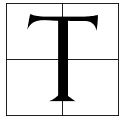The 1600s: The Worst Century in History
 There is a theory that humanity has a collective thought process that influences people in different regions to do similar things simultaneously. This theory is used to explain the prevalence of pyramids all over the old world, even though there was minimal communication among distant regions.
There is a theory that humanity has a collective thought process that influences people in different regions to do similar things simultaneously. This theory is used to explain the prevalence of pyramids all over the old world, even though there was minimal communication among distant regions.
This theory could also be used to explain other things that humanity has been able to bring upon itself. One such situation was the entire 17th century. It was a whole century of human-inflicted strife on the entire planet. All major continents recorded one of the largest scale carnages on human populations.
Underestimating the human capacity to inflict damage often leads to people not learning the consequences of these actions.
Poor governance
Very few countries can say that they have experienced four decades of constant rebellion. We know because many dynasties have ruled China over the many centuries that it has been a singular entity. One of those dynasties was the Ming dynasty.
The royal family had fallen out with the military, and it thus brought about insurrection. No one was satisfied with their rule, and they forwarded their complaints in a presentation known as The Seven Grievances in 1618. Even with a repressive campaign, the government was unable to deal with the dissatisfaction and finally caved to a new dynasty in 1636 called the Qing dynasty.
Europe alone was engaged in far too many wars to track independently in one article. Mainland Europe was a hotbed for a total war of empires that did not see eye to eye on religion, nationality, or personal interest. The most notable war was between Catholics and Protestants, a battle fought on so many fronts that they are reminiscent of how the World Wars happened.
This conflict is mostly known as the Thirty Years war. It had over eight million casualties and many more immediate implications. One of them was the reduction of the German population that devastated the agricultural output of the nation. This was the war that ended religious war fanaticism and inspiration in Europe. No one could afford to fight over matters such as these anymore at the cost of their economy.
Sovereignty
People have gotten attached to their nation-states to the point of killing others for trying to rule over them. It is beyond doubt that most people will never let themselves get stepped on without a fight.
Thus the Indian Kingdom led by an Ethiopian military king fought one of the most powerful empires that arose on the subcontinent, the Mughals. Malik Ambar fought the Mughals and decimated them on so many occasions that his military prowess almost became mythical. The odds were stacked against him, but he only lost one battle to the mighty empire. Malik was credited with introducing guerilla warfare to the region.
On the African continent, many battles were raging on against slave traders. One of the most high profile retaliations was the one Queen Nzinga staged against Portugal. The demand for African slaves had risen due to their diminished susceptibility to malaria compared to other races.
Because of this, the queen led a thirty-year war against Portugal. With diplomatic exploitation of European rivalry, she formed alliances that helped her struggle against slave concessions that would finish off her people. There was a total of three Thirty Years wars occurring in the world at the time.
The whole globe was a theater for war in one of the world’s most horrible centuries. Selfish interests and baseless political repression led to mass dissatisfaction, and in the wake of all these disagreements, most of the world's people rose against suffering.
More articles from this author:
Sources
[1]Snethen, Jessica. “Queen Nzinga (1583–1663).” BlackPast is Dedicated to Providing a Global Audience with Reliable and Accurate Information on the History of African America and of People of African Ancestry Around the World. We Aim to Promote Greater Understanding Through This Knowledge to Generate Constructive Change in Our Society. Accessed January 12, 2021. https://www.blackpast.org/global-african-history/queen-nzinga-1583-1663.
[2] “Malik Ambar.” Wikipedia, the Free Encyclopedia. Last modified December 5, 2005. https://en.wikipedia.org/wiki/Malik_Ambar.
[3]“Thirty Years’ War | Summary, Causes, Combatants, Map, & Significance.” Encyclopedia Britannica. Accessed January 12, 2021. https://www.britannica.com/event/Thirty-Years-War
